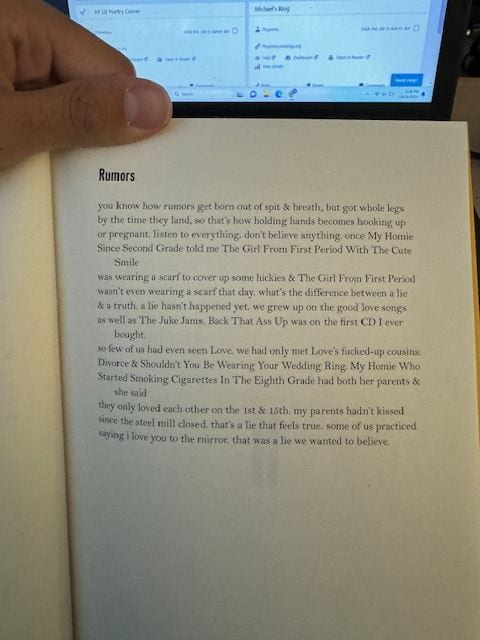
This poetry “The World Is Too Much With Us” by William Wordsworth is a 14 line sonnet. This poem has the theme of nature just like most poems. The rhyme scheme follows ABBA ABBA pattern in the octave and CDCDCD rhyme scheme in the sestet. The meter is also an Iambic Pentameter which consists of 5 iambs. Wordsworth made this sonnet in 1802 during the Romanticism, also known as the Romantic era. This era was an artistic, literary, musical and intellectual movement that originated in Europe towards the end of the 18th century, and in most areas was at its peak in the approximate period from 1800 to 1850. Romanticism was characterized by its emphasis on emotion and individualism as well as glorification of all the past and nature, preferring the medieval rather than the classical. It was partly a reaction to the Industrial Revolution,the aristocratic social and political norms of the Age of Enlightenment, and the scientific rationalization of nature—all components of modernity. Wordsworth sounds frustrated in human society because we don’t cherish nature and waste its resources. This reasoning can be shown in line 2 and line 3 where he says “we waste our powers” and “Little we see in Nature that is ours;” The “World” in the title means that the world cares too much and concerns such as money, possessions, and power. The other part “Too Much With Us” means human society cares too much about these possessions. Too many people have used up the world’s resources due to their greed and it is harming nature. In line 8 to 10, “For this, for everything, we are out of tune; It moves us not. Great God! I’d rather be A Pagan suckled in a creed outworn.” The line “we are out of tune” means that society is out of tune with nature because of our worldly desires. The author says he would rather be a pagan, person who has no religious beliefs, than to be distracted by worldly desires and be unable to enjoy the true beauties of life. The sonnet has a lot of figurative language like allusion and personification about nature. For example, “This Sea that bares her bosom to the moon” is a personification because it is giving the sea human characteristics with bosom. This description shows a mutual relationship between the sea and the moon. Another example of figurative language is allusion in lines 12 to 14 which says “So might I, standing on this pleasant lea, Have glimpses that would make me less forlorn;Have sight of Proteus rising from the sea; Or hear old Triton blow his wreathèd horn.” These lines reference two Greek gods Triton and Proteus. Proteus was a prophetic old man of the sea and believed to know everything, including past, present, and future. The speaker implies that if he was pagan he could possibly see Proteus out in the sea and even interact with him. Triton is the god of the sea and son of Poseidon and Amphitrite. It was believed that Triton was able to calm the waves of the sea, so the speaker also implies if he looks out into the sea and enjoys nature, he is able to see Triton. I relate to this sonnet because I also believe nature is more precious than our worldly desires. Nature provides us with many essentials to live from plants that provide us oxygen, animals to eat, and the sun to give us sunlight. Without it, we would all perish and this world would be nothing but a cold, giant rock which is why we should appreciate it.


